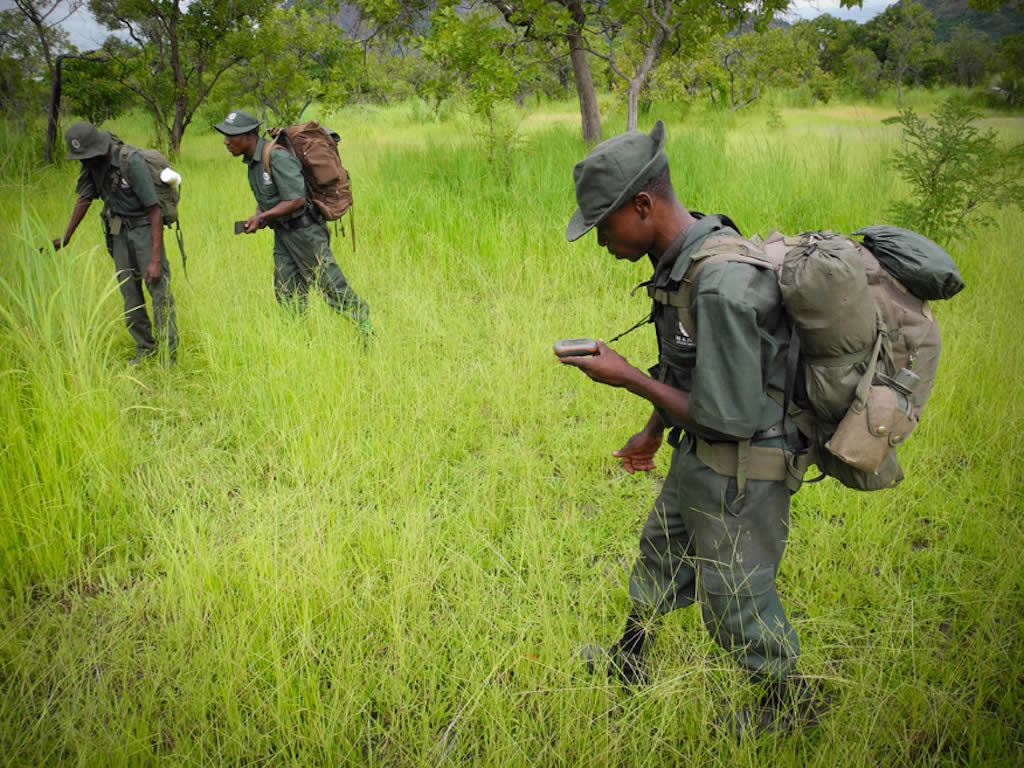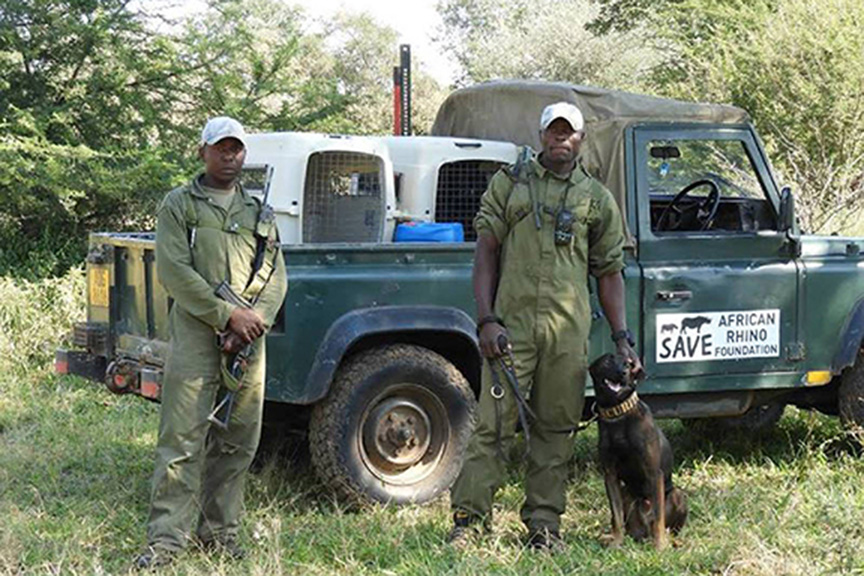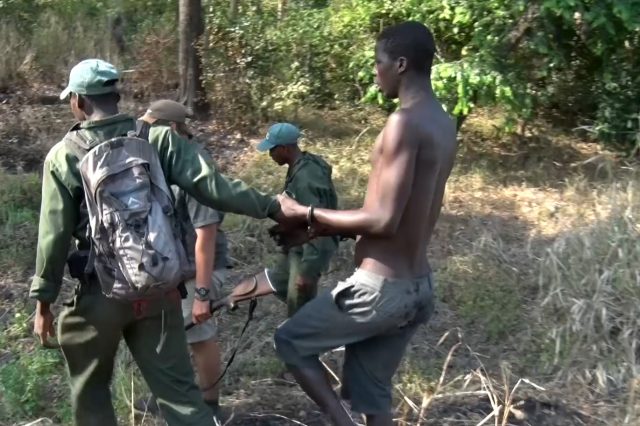Anti-Poaching Projects in Africa
Wildlife and the habitat that supports it must be valued. Above all, those who live with wildlife every day, must be able to derive financial and/or nutritional benefit from that wildlife if it is to survive. Without the ability to use and benefit from wild flora and fauna, poaching is often seen as the only option in many areas of the world.
Rural communities must be provided alternatives for herding and other practices that do not encourage responsible wildlife management and be rewarded for supporting the efforts of those dedicated to protecting wildlife if anti-poaching efforts are able to succeed in the real world.



MOZAMBIQUE ANTI-POACHING PROJECT
Species involved: Primarily rhino
Project partners: The GEOS Foundation, The Dyck Advisory Group Conservation Trust
Total SCIF Investment: $50,000
Year SCIF began involvement: 2018 (Timeline: 2015 – Ongoing)
Recent Project Update
The DAG conducts counter poaching operations in the Limpopo National Park Area of Mozambique across the border from Kruger National Park in South Africa. These are primarily focused on rhino, with lesser focus on elephants and the bushmeat trade in the area. Staff was able to see a presentation by Colonel Dyck at the AWCF in Kampala in November about their activities. We received a report for November-December 2018, which was very detailed and included daily logs for counter-poaching activity most of that time. Over the two months, rangers documented 22 potential poaching incursions in the area, arrested seven individuals (including four rhino/elephant poachers and three after illegal bushmeat), confiscated four firearms, and picked up 209 snares. The DAG is planning to expand operations from Limpopo to the nearby Maputo Special Reserve as we start the new year.
SAVE VALLEY CONSERVANCY PROJECT
Species involved: Primarily rhino and elephant
Project partner: Save Valley Conservancy
Total SCIF Investment: $25,000 (Funded by HLF)
Year SCIF began involvement: 2018 (Timeline: 2011 – Ongoing)
Recent Project Update
The SVC is an approximately 3,500 km2 wildlife area in southern Zimbabwe. It supports significant populations of black and white rhinos, as well as elephants, lions, and African wild dogs. As with any area supporting rhinos and elephants, poaching is a serious issue and the SVC has a two-tier antipoaching system. Individual landowners in the conservancy support ranch scouts that patrol their properties and the SVC as a whole runs a highly trained, armed, and mobile Specialized Species Protection Unit (SSPU). The SSPU can respond to threats identified by ranch scouts or operate independently within SVC. The SSPU consists of 37 rangers with their vehicles and equipment plus four trained tracking dogs. In 2018, they observed three incursions by organized rhino poachers, of which one was successful. This followed the 2017 arrest and prosecution of four members from a well-organized poaching ring in the area. They also arrested and prosecuted one individual for poaching pangolin on the SVC. Not coincidentally, 2018 saw the highest recorded annual reproductive output for rhinos on SVC—5 white rhino and 21 black rhino calves. In the last 5 years, there have been reduced poaching mortality and increased annual population growth in both species at SVC.
COMMUNITY-BASED ANTI-POACHING TRAINING IN NAMIBIA
Species involved: Primarily rhino and elephant
Project partner: Namibian Association of Conservancy Support Organizations (NACSO)
Total SCIF Investment: $25,000 (Total need: 25,000)
Year SCIF began involvement: 2017 (Timeline: 2017 – Ongoing)
SMART TRAINING IN TANZANIA SELOUS GAME RESERVE
Species involved: Primarily rhinos and elephants
Project partner: College of African Wildlife Management, Mweka
Total SCIF Investment: $50,000 (Total need: $50,000)
Year SCIF began involvement: 2017 (Timeline: 2017 – Ongoing)
Want to learn more about the project? Watch this video.

Since 2000, SCI Foundation has provided more than $80 million to promote science-based conservation through wildlife research, capacity building in governments, youth and teacher education, and humanitarian programs that show the importance of the hunting community in society around the world. Growth of SCI Foundation has continued to gain momentum through charitable donations from SCIF and SCI members. Throughout the world, SCI’s approximately 50,000 members and 190 chapters contribute time, talent, and financial support to local, national, and international projects.

